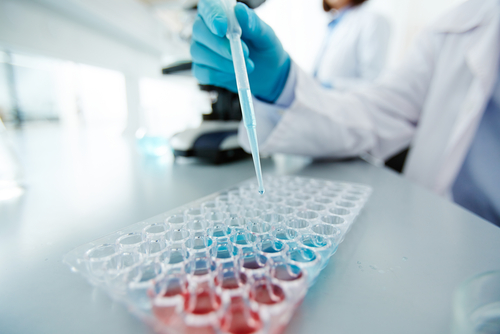MJFF Awards Casma Therapeutics $370K for Innovative Therapies to Slow PD Progression

The Michael J. Fox Foundation for Parkinson’s Research (MJFF) has awarded Casma Therapeutics $370,000 to advance an innovative class of therapies aimed at slowing disease progression.
The grant will promote the biotechnology company’s investigation into compounds that activate the calcium channel TRPML1 to accelerate autophagy — a natural cellular way of disposing of pathogens and toxic proteins. The hope is that boosting autophagy will protect and rescue damaged neurons. It’s widely believed that Parkinson’s disease (PD) results from neuronal buildup of toxic proteins.
Casma will test its novel TRPML1-activating treatments using human-induced pluripotent stem cell-derived dopaminergic neurons, which model Parkinson’s disease. The neurons will be generated by the National Human Genome Research Institute (NHGRI) from patient samples collected at the National Institutes of Health (NIH). Induced pluripotent stem cells are derived from either skin or blood cells that have been reprogrammed back into a stem cell-like state. This allows for the development of an unlimited source of any type of human cell needed for therapeutic purposes.
The study is in collaboration with co-MJFF grantee Ellen Sidransky, MD, a Parkinson’s expert and top NHGRI researcher.
Join the Parkinson’s forums: an online community for people with Parkinson’s Disease and their caregivers.
“Inducing the natural process of autophagy to clear toxic proteins is a promising new approach to treating Parkinson’s,” Daniel Ory, MD, Casma senior vice president, translational medicine, said in a press release. “We share the foundation’s sense of urgency, and we’re eager to move our program forward.”
New discoveries are revealing the fundamental role of autophagy and lysosomal flux in maintaining cellular health, according to a Casma webpage. Lysosomes are special compartments within cells that digest and recycle different types of molecules. Research has shown that inadequate or aberrant autophagy contributes to genetic diseases, including Parkinson’s.
The company believes that restoring cellular balance may arrest or reverse disease progression.
”Funding therapies against emerging targets such as TRPML1 is a crucial plank in our effort to find a cure for Parkinson’s,” said Liliana Menalled, PhD, MJFF senior associate director of research programs. “We are committed to leaving no stone unturned as we pursue therapies that will help the more than 6 million people worldwide living with this disease.”
The Parkinson’s Foundation, which says approximately 60,000 Americans are newly diagnosed each year, puts the global figure even higher, estimating that more than 10 million people live with the disease.






